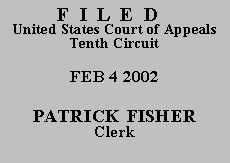

| UNITED STATES OF AMERICA, |
|
| v. |
(D.C. No. 00-CR-394-J) |
| LUIS ENRIQUE GARCIA-ARMENTA, also known as Jesus Manuel Zandoval-Lopez, |
The single issue presented by this case is whether Garcia-Armenta's 1997 conviction in the state of Utah for third-degree felony retail theft, which resulted in an indeterminate 0-5 year sentence, qualifies as an "aggravated felony" under § 2L1.2(b)(1)(A). The problem arises because the commentary to § 2L1.2(b)(1)(A) directs us to look at 8 U.S.C. § 1101(a)(43) to define the term "aggravated felony." That section provides that an aggravated felony includes "a theft offense . . . for which the term of imprisonment [is] at least one year." 8 U.S.C. § 1101(a)(43)(G).(2) Garcia-Armenta argues that his "indeterminate sentence of 0-5 years under Utah law is not a sentence of at least 12 months because Utah law specifies that an indeterminate sentence is not simply a sentence to the maximum term which may then be shortened by the action of the Utah Board of Pardons. Rather, Utah law provides that the trial court must sentence defendant to a statutorily required range of years, and the Board of Pardons is then required by law to set the actual term of the sentence, as a functional sentencing authority." Appellant's Opening Br. at 3-4. We disagree.
Garcia-Armenta concedes that a prior decision by a panel of this court, United States v. Reyes-Castro, 13 F.3d 377, 379-80 (10th Cir. 1993), controls our resolution of this case, unless he can persuade us that the ordinary rule that one panel of this court may not overrule another does not apply. See United States v. Meyers, 200 F.3d 715, 720 (10th Cir. 2000). In Reyes-Castro, we examined essentially the same question as is presented in this case: whether a Utah conviction for attempted sexual abuse of a child, which resulted, by Utah statute, in "an indeterminate sentence 'not to exceed five years.'" Reyes-Castro, 13 F.3d at 379 (quoting Utah Code Ann. § 76-3-203(3)), qualifies as an aggravated felony "for which the term of imprisonment imposed . . . is at least five years" under the then applicable provisions of 8 U.S.C. § 1101(a)(43). In fact, Reyes-Castro's sentence was "suspended with thirty-six months probation on the condition that he serve one year with possible release after three months." Reyes-Castro, 13 F.3d at 379. We held that it did qualify as an aggravated felony.
We began by observing that "[a]n indeterminate sentence is a 'sentence to imprisonment for the maximum period defined by law, subject to termination . . . at any time after service of the minimum period.'" Id. at 380 (quoting Black's Law Dictionary 694 (5th ed. 1979)). We also cited State v. Nemier, 148 P.2d 327, 331 (Utah 1944), in which the Utah Supreme Court stated that it had "repeatedly held that an indeterminate sentence is a definite sentence for the maximum term therein stated, unless it is commuted or terminated or the prisoner is paroled or pardoned by the Board of Pardons." We then explicitly held that "[u]nder Utah law, therefore, we must construe Mr. Reyes-Castro's sentence as a sentence for a term of five years." Reyes-Castro, 13 F.3d at 380.
We followed Reyes-Castro in a later case, United States v. Chavez-Valenzuela, 170 F.3d 1038, 1039-40 (10th Cir. 1999), which involved the determination of whether a Utah conviction resulting in an indeterminate sentence "'not to exceed five years'" permitted a downward departure, following the sixteen-level enhancement, under a then existing Application Note to USSG 2L1.2(b)(1)(A). That application note permitted a downward departure if "the term of imprisonment imposed for such [aggravated felony] did not exceed one year." USSG § 2L1.2(b)(1)(A), comment. (n.5). We noted that "term of imprisonment" was defined in 8 U.S.C. § 1101(a)(48) as "the period of incarceration or confinement ordered by a court of law regardless of any suspension of the imposition or execution of that sentence of imprisonment in whole or in part." Id. (internal quotations omitted). Citing Reyes-Castro, we concluded that "Chavez-Valenzuela's term of imprisonment did exceed one year, and was in fact five years, because we measure the term of imprisonment for an indeterminate sentence by the possible maximum term of imprisonment." Id. at 1040.
Garcia-Armenta argues that Utah law has changed, that Reyes-Castro is no longer an accurate statement of Utah law, and that Chavez-Valenzuela is inapplicable to this case. We disagree with each of those points.
We have carefully read the Utah authorities to which Garcia-Armenta refers us, and perceive no clear change in Utah law such that we must conclude that Reyes-Castro is no longer valid, to the extent it interprets Utah law. Moreover, Reyes-Castro and Chavez-Valenzuela correctly interpreted the applicable federal statutes and guidelines. And, despite Garcia-Armenta's argument that Chavez-Valenzuela is somehow irrelevant to this case because it interpreted an Application Note which we do not consider in this case, the principles underlying Chavez-Valenzuela are fully applicable to this case and, along with Reyes-Castro, foreclose the arguments he makes.
For the foregoing reasons, we AFFIRM the sentence imposed by the district court.
ENTERED FOR THE COURT
Stephen H. Anderson
Circuit Judge
*.This order and judgment is not binding precedent, except under the doctrines of law of the case, res judicata, and collateral estoppel. The court generally disfavors the citation of orders and judgments; nevertheless, an order and judgment may be cited under the terms and conditions of 10th Cir. R. 36.3.
1.Effective November 1, 2001, § 2L1.2 has been amended so that there is a graduated sentencing enhancement of between eight and sixteen levels, depending on the seriousness of the aggravated felony.
2.The legislative history reveals that the bracketed word "is" was mistakenly omitted from the definition of aggravated felony. See, e.g., United States v. Pacheco, 225 F.3d 148, 149 (2nd Cir. 2000); United States v. Banda-Zamora, 178 F.3d 728, 729 (5th Cir. 1999); United States v. Graham, 169 F.3d 787, 790 (3d Cir. 1999).